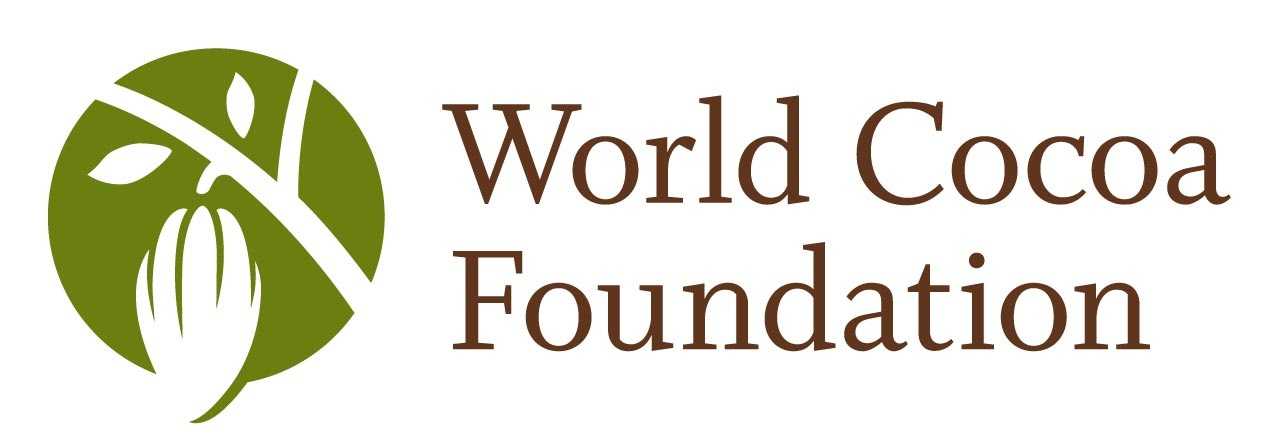ABIDJAN, Côte d’Ivoire — Nearly 500 representatives of the global chocolate and cocoa sector, including farmers, have gathered in Côte d’Ivoire, the world’s leading producer of cocoa, to address critical sustainability issues confronting the crop, which is the main source of income for millions of people across West Africa and in large parts of Latin America and Southeast Asia.
The Partnership Meeting & Cocoa Sustainability Trade Fair, centered on the theme “People, Planet, Profit in a Changing World,” is jointly organized by the World Cocoa Foundation (WCF) and Côte d’Ivoire’s cocoa regulatory agency, Le Conseil du Café-Cacao.
Underscoring the urgency of these issues, WCF and the United States Government’s Feed the Future are launching African Cocoa Initiative II.
The five-year, $12 million effort will increase production of quality cocoa planting materials and provide financial services to cocoa farmers in Cameroon, Côte d’Ivoire, Ghana and Nigeria. The program is a joint effort to support the implementation of the World Cocoa Foundation’s CocoaAction strategy for cocoa sustainability and brings together the public and private sector.
According to WCF President Richard Scobey, the Abidjan conference aims to address both persistent challenges and emerging concerns for the cocoa sector. Scobey says, “We are deepening our focus on the key elements of the sustainability agenda.
Ensuring that cocoa farming constitutes a sustainable livelihood for farmers, providing youth meaningful opportunities in the cocoa sector and empowering women who work in cocoa have long been top priorities for WCF, but we know that more needs to be done.
Other issues, such as financing farm rehabilitation, addressing deforestation, and strengthening accountability and transparency, demonstrate our commitment to confront new threats and explore new opportunities.”
In opening remarks, Ivorian Prime Minister Daniel Kablan Duncan outlined a series of steps that the host country is taking to encourage further development of its cocoa industry, including an ambitious plan to locally process 50 percent of the local cocoa crop by 2020 and support local production of chocolate.
According to Massandjé Touré-Litse, Director General of Le Conseil du Café-Cacao, “We are particularly happy that the World Cocoa Foundation’s 2016 Partnership Meeting, the 28th of its type, is taking place in Côte d’Ivoire, the land of cocoa.
We are looking forward with much interest to hearing responses to the following questions that appear to us as fundamental for effectively addressing the challenge of achieving sustainability in the sector.
These include i) how to grow cocoa in the face of climate change and deforestation, ii) how to empower women so they contribute to sustainability in the sector, iii) how to encourage a new generation to follow in the footsteps of earlier generations of cocoa farmers, and iv) how to improve farmer incomes, which is key to maintaining the workforce in cocoa growing areas, and also how to improve living and working conditions in cocoa growing communities.”
The Partnership Meeting will address a wide range of topics, including sustainability, women’s financial inclusion, deforestation, engaging a new generation of cocoa farmers, future trends in cocoa-related science, providing farmers needed finance to rehabilitate and renew their farms, and more.
To reinforce the transparency theme of the Abidjan discussions, WCF issued today its first CocoaAction Annual Report, an important step to report results and enhance accountability by nine of the world’s leading chocolate and cocoa companies to voluntarily align around a strategy for a rejuvenated and economically viable cocoa sector.
CocoaAction, announced in 2014 in Côte d’Ivoire and Ghana, is committed to a transformed cocoa sector that offers a profitable way of life for professionalized and economically empowered cocoa farmers and their families, while providing a significantly improved quality of life for cocoa-growing communities. The strategy’s initial focus is 300,000 Ivorian and Ghanaian cocoa farmers and their communities.
Nearly 500 attendees representing the chocolate and cocoa industry, global retailers, cocoa producing country governments, nonprofit organizations, academia, and research institutes are participating in more than a dozen plenaries and small group discussions during the two-day session.
The Partnership Meeting also features a Cocoa Sustainability Trade Fair, which offers information about sustainability efforts being undertaken in the cocoa sector around the world.
The Trade Fair is an integral part of efforts by the sector to share information and practices to assist in deepening knowledge and highlighting successful approaches.
To learn more about the 2016 Partnership Meeting and CocoaAction, visit www.worldcocoafoundation.org.
About WCF: The World Cocoa Foundation (WCF) is an international membership organization that promotes sustainability in the cocoa sector. WCF provides cocoa farmers with the support they need to grow more quality cocoa and socially and economically strengthen their communities. WCF’s members include cocoa and chocolate manufacturers, processors, supply chain managers, and other companies worldwide, representing more than 80 percent of the global cocoa market. WCF’s programs benefit farmers and their communities in cocoa-growing regions of Africa, Southeast Asia, and the Americas. For more information, visit www.worldcocoafoundation.org or follow us on Twitter and Facebook.
About Le Conseil du Café-Cacao: The Council of Regulation, Stabilization and Development of the Coffee and Cocoa Sector, i.e. Le Conseil du Café-Cacao, was created by Presidential Order 2011-481 of December 28, 2011, and set the rules relative to the trade of coffee and cocoa and the regulation of the coffee and cocoa sector in Côte d’Ivoire. It is the single government-established body responsible for managing the coffee and cocoa sector. Le Conseil du Café-Cacao exists primarily to serve Ivorian coffee and cocoa farmers. For more information, visit www.conseilcafecacao.ci.















